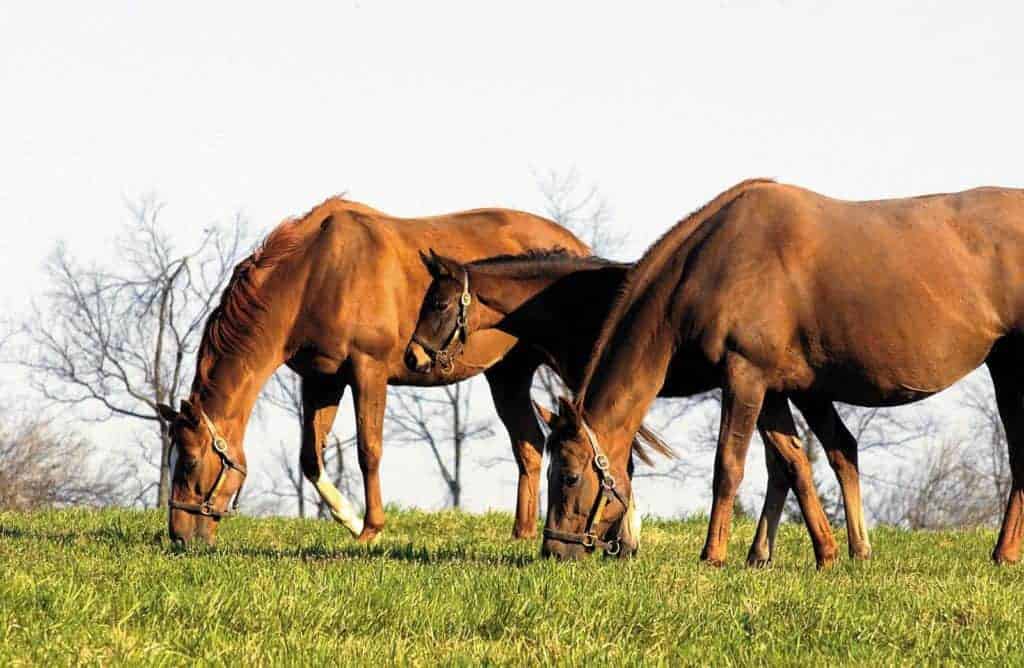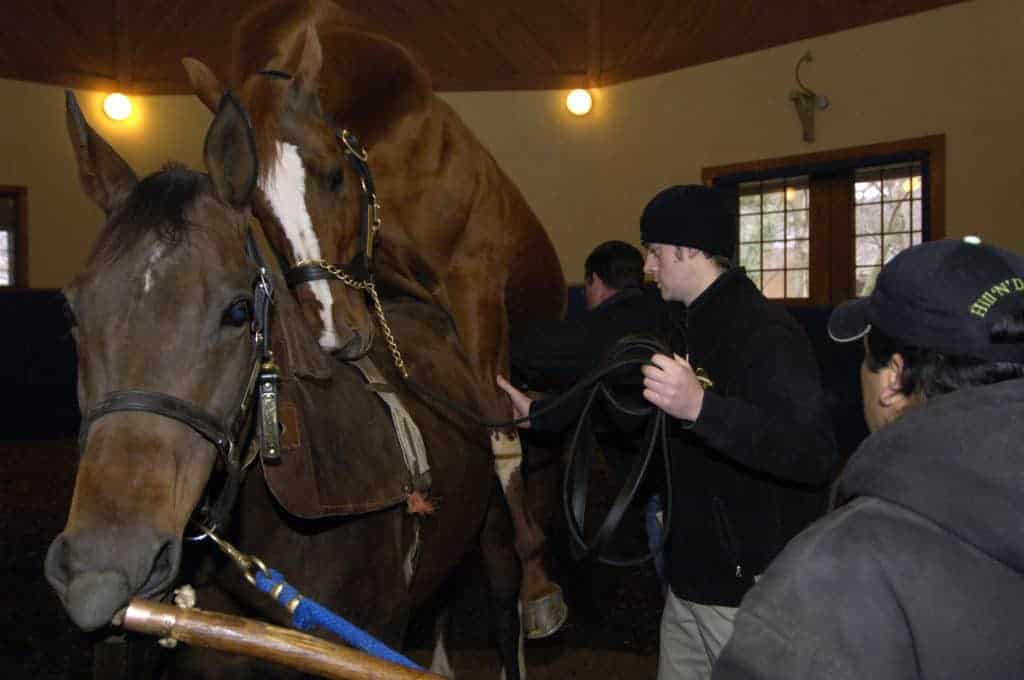
2013 Theriogenology Conference Kicks Off
The Society for Theriogenology’s Conference starts Aug. 7 and continues through Aug. 10 in Louisville, Ky.

The Society for Theriogenology’s Conference starts Aug. 7 and continues through Aug. 10 in Louisville, Ky.

Lactating mares on good quality pasture didn’t need grain to maintain their weight or their foals’ growth.
Presentations topics ranged from the physiological details of reproduction and foaling to diets and nutrition.
Subsequent to the nocardioform placentitis surge in 2011, research in this field has progressed.

A behaviorist describes mare and foal behavior and how to avoid perpetuating undesirable orphan foal behavior.

During the breeding and foaling season, lush fescue pastures could create problems for pregnant mares.

Vets might be able to determine if some mares are at risk of late-term abortion by conducting a blood test.

Researchers recently investigated two ways to help advance the breeding season in mares.

Common foaling problems include red bag delivery, difficult birth, and retained fetal membranes.
How do I deal with a mare that is so protective she will not let me near her or the foal?

One veterinarian says many cases of early embryonic death (EED) are probably not preventable.

Potentially life-threatening postpartum complications in the mare can arise for up to two weeks after foaling.

One researcher describes how practitioners can monitor pregnant mares to minimize reproductive losses.

One researcher says there are five major problems to consider during the final month of a mare’s pregnancy.

Researchers evaluated the impact of postpartum breeding date on pregnancy, pregnancy loss, and foaling rates.

Ovulation in healthy mares was not impacted by acupuncture in this study.
Stay on top of the most recent Horse Health news with
"*" indicates required fields